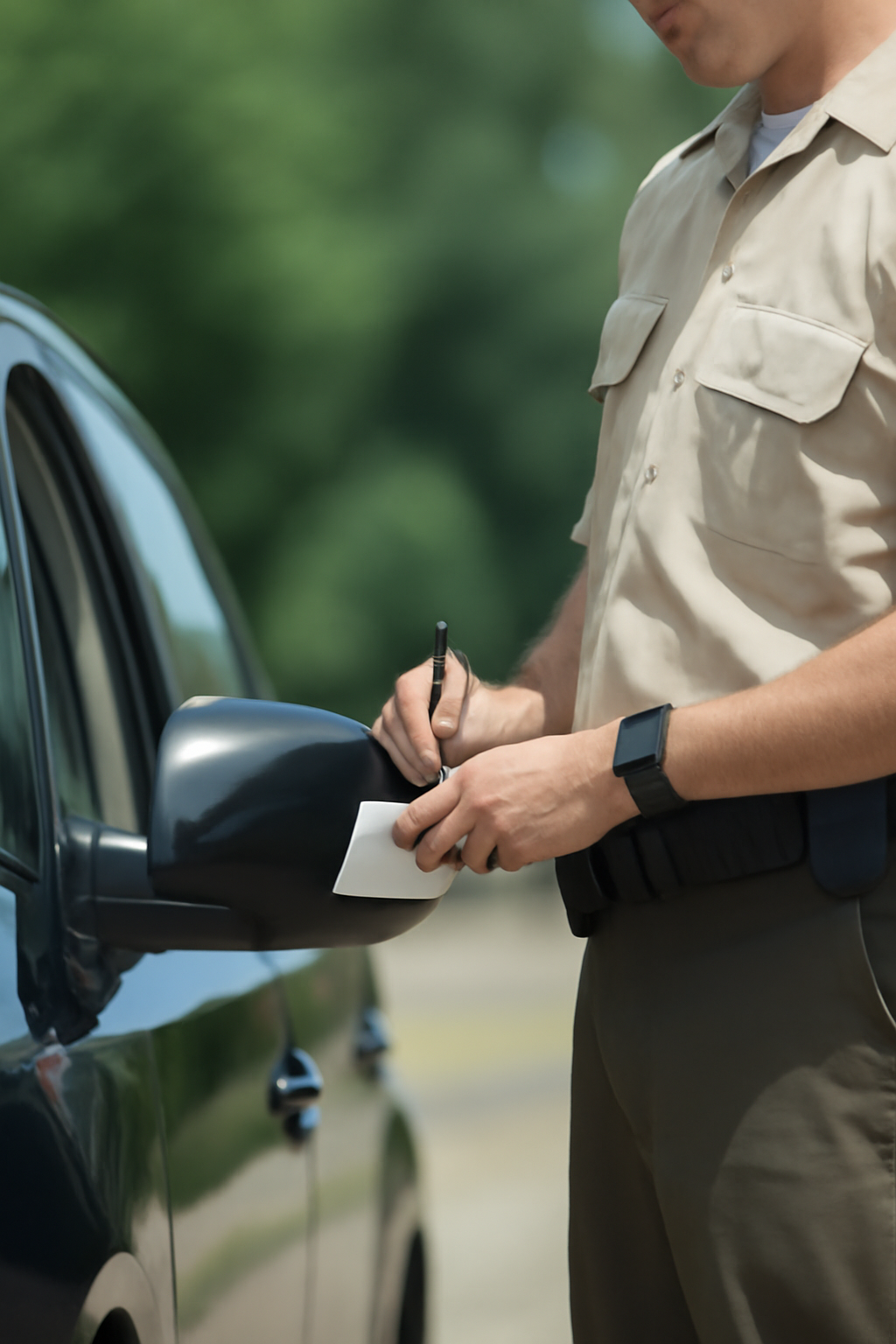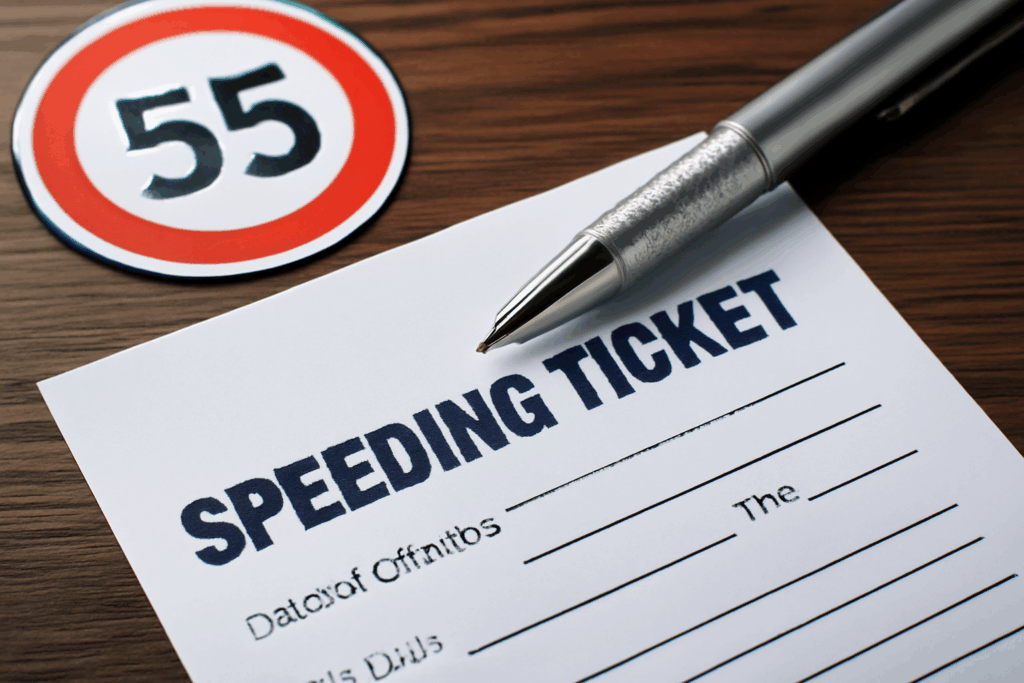Traffic Tickets in Alabama: What Drivers Need to Know
If you’ve received a traffic ticket in Alabama, your next steps matter. The choices you make—whether to pay, contest, or consult an attorney—can directly affect your driving record, insurance rates, and even your license status.
This guide explains exactly what Alabama drivers need to know about traffic tickets, how the point system works, and when to seek legal help.
You’ll learn:
- What to do immediately after receiving a citation
- Common types of tickets and their penalties
- How points affect your Alabama driver’s license
- Whether it’s better to pay or fight your ticket
- How Tim Fleming Law can help you protect your record
What Is a Traffic Ticket in Alabama?
A traffic ticket is an official citation issued by a law enforcement officer when a driver violates state or local traffic laws.
In Alabama, traffic violations fall into two categories:
- Moving violations – Infractions that occur while the vehicle is in motion (e.g., speeding, running a red light).
- Non-moving violations – Offenses like expired tags, parking tickets, or equipment failures.
Definition Box: Alabama Driver License Point System
The point system tracks driving violations. Each moving violation adds points to your record. Accumulating too many points can lead to suspension.
| Points | Violation Example |
| 2 | Speeding 1–25 mph over limit |
| 6 | Reckless driving, failure to yield |
| 5 | Speeding 26+ mph over limit |
13 points in 2 years = license suspension.
Common Types of Traffic Tickets in Alabama
- Speeding Tickets
Speeding is one of the most common citations in Alabama.
- Fine Range: $20 -$150 depending on speed and county
- Points: 2–5
- Extra Penalties: Higher fines in school or construction zones
- Red-Light and Stop-Sign Violations
Running a red light or stop sign can result in a fine and 3–4 points. Some cities use traffic cameras, and tickets are mailed to vehicle owners.
- Driving Without Insurance
This violation can lead to suspension of registration, reinstatement fees, and mandatory SR-22 insurance filing.
- Reckless Driving
Defined under Ala. Code § 32-5A-190, reckless driving is a misdemeanor, punishable by fines up to $500 and possible jail time for repeat offenses.
- Driving With a Suspended License
A serious offense that may include fines, extended suspension, or incarceration.
What Happens When You Get a Traffic Ticket in Alabama?
Step 1: Review the citation carefully.
Note the violation, fine amount, and court date.
Step 2: Decide how to respond.
You typically have three options:
- Pay the fine (an admission of guilt).
- Contest the ticket in court.
- Request to attend driving school (available for some violations).
Step 3: Understand the consequences.
Paying might seem easy, but it adds points to your record and can raise your insurance premiums.
Should You Pay or Fight Your Alabama Traffic Ticket?
While paying ends the process quickly, it’s often not the smartest financial choice.
Paying a ticket means:
- Admitting guilt
- Adding points to your license
- Increasing your insurance costs for years
Fighting a ticket with legal help may:
- Keep points off your record
- Reduce fines or dismiss the citation
- Avoid insurance hikes
According to data from the Alabama Department of Public Safety, even a minor speeding ticket can raise insurance premiums by 15–20 percent.
How a Traffic Ticket Attorney Can Help You
A lawyer experienced in Alabama traffic law—like Tim Fleming Law—can:
- Challenge evidence (radar calibration, officer’s observation, etc.)
- Negotiate for dismissal or reduction
- Help you avoid court appearances
- Protect your driving record and insurance rates
“Traffic tickets might seem minor, but the ripple effect on your license and insurance can last for years. Legal guidance often pays for itself,” notes Tim Fleming, Alabama attorney.
Step-by-Step Guide: Fighting a Traffic Ticket in Alabama
- Contact an Attorney Early – Don’t wait until your court date. Early action allows for stronger defense preparation.
- Provide All Documentation – Include the citation, photos, and any evidence.
- Attorney Reviews the Case – Analyzes details like radar reliability, officer training, and procedure.
- Court Representation – Your lawyer may appear on your behalf.
- Resolution – Charges may be reduced, dismissed, or replaced with defensive driving options.
Related Questions About Alabama Traffic Tickets
Can I Get My Ticket Dismissed?
Yes. Common dismissal reasons include clerical errors, lack of evidence, or procedural mistakes.
Will a Ticket Affect My Insurance?
Almost always, unless it’s dismissed or adjudicated “not guilty.”
Can I Attend Driving School Instead?
In some counties, judges may allow defensive driving courses to remove or reduce points.
How Long Do Points Stay on My Record?
Two years from the date of conviction.
Common Mistakes Alabama Drivers Make
- Paying the fine without exploring legal options
- Missing a court date
- Ignoring a suspended license warning
- Assuming a ticket “isn’t worth fighting”
These mistakes can lead to higher costs, insurance hikes, and license suspension.
Authority Tip: Alabama Driving Facts
According to the Alabama Law Enforcement Agency (ALEA):
- Over 500,000 traffic citations are issued each year statewide.
- Speeding and distracted driving remain the top causes of traffic stops.
- Roughly 1 in 10 tickets results in license points or suspension.
Conclusion: Protect Your Record—Act Before It’s Too Late
Key Takeaways:
- Alabama’s point system adds up quickly; 12 points = license suspension.
- Paying a ticket often costs more long-term than fighting it.
- Legal representation can protect your license, insurance, and finances.
- Every driver has rights—knowing yours is the first step to a better outcome.
Next Step:
If you’ve received a traffic ticket in Alabama, contact Tim Fleming Law today for a consultation. We’ll explain your options and help you move forward with confidence.







